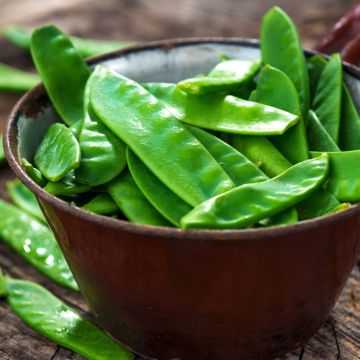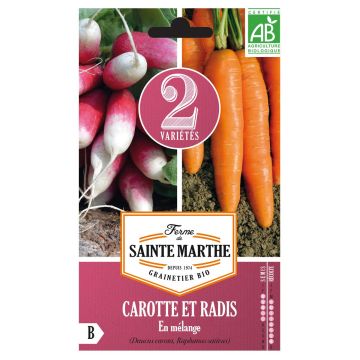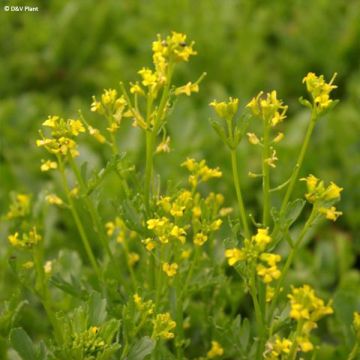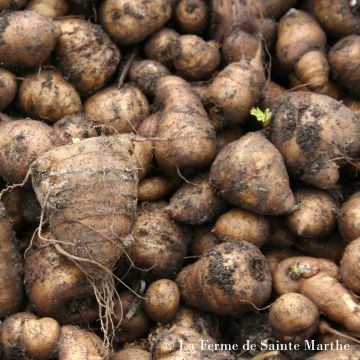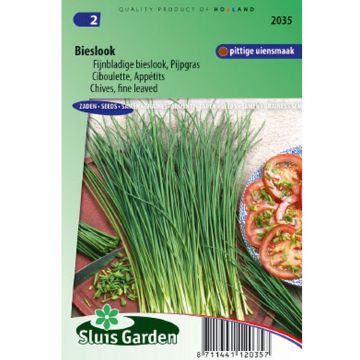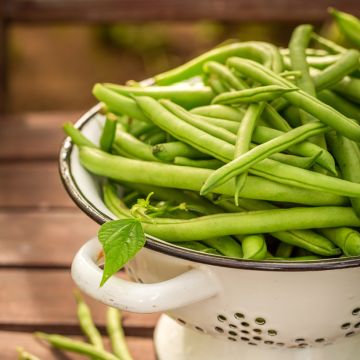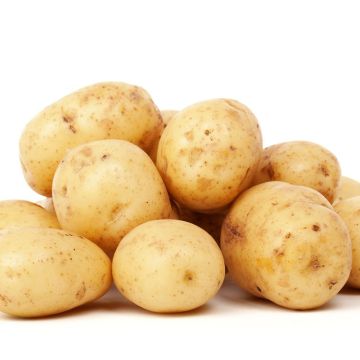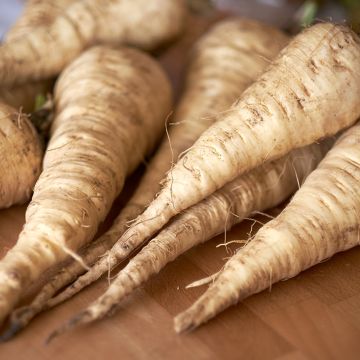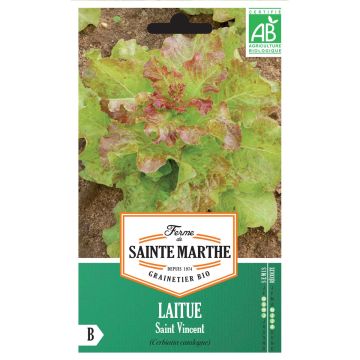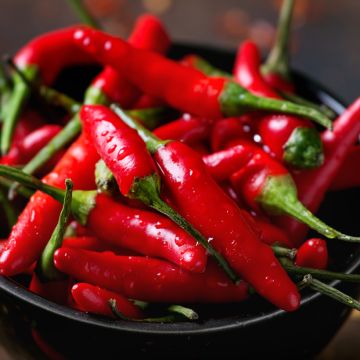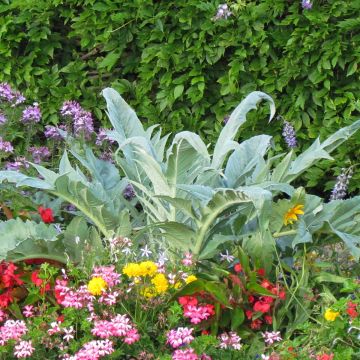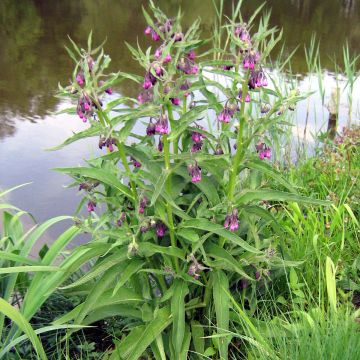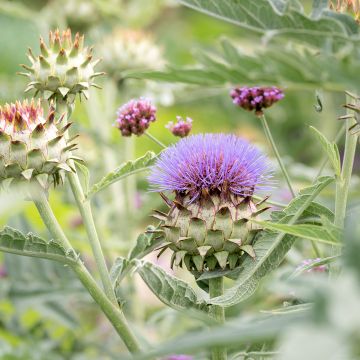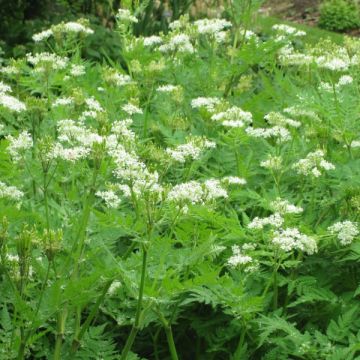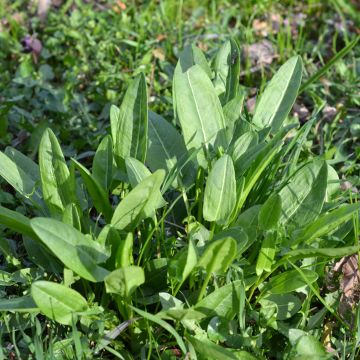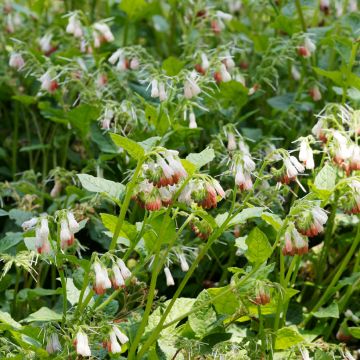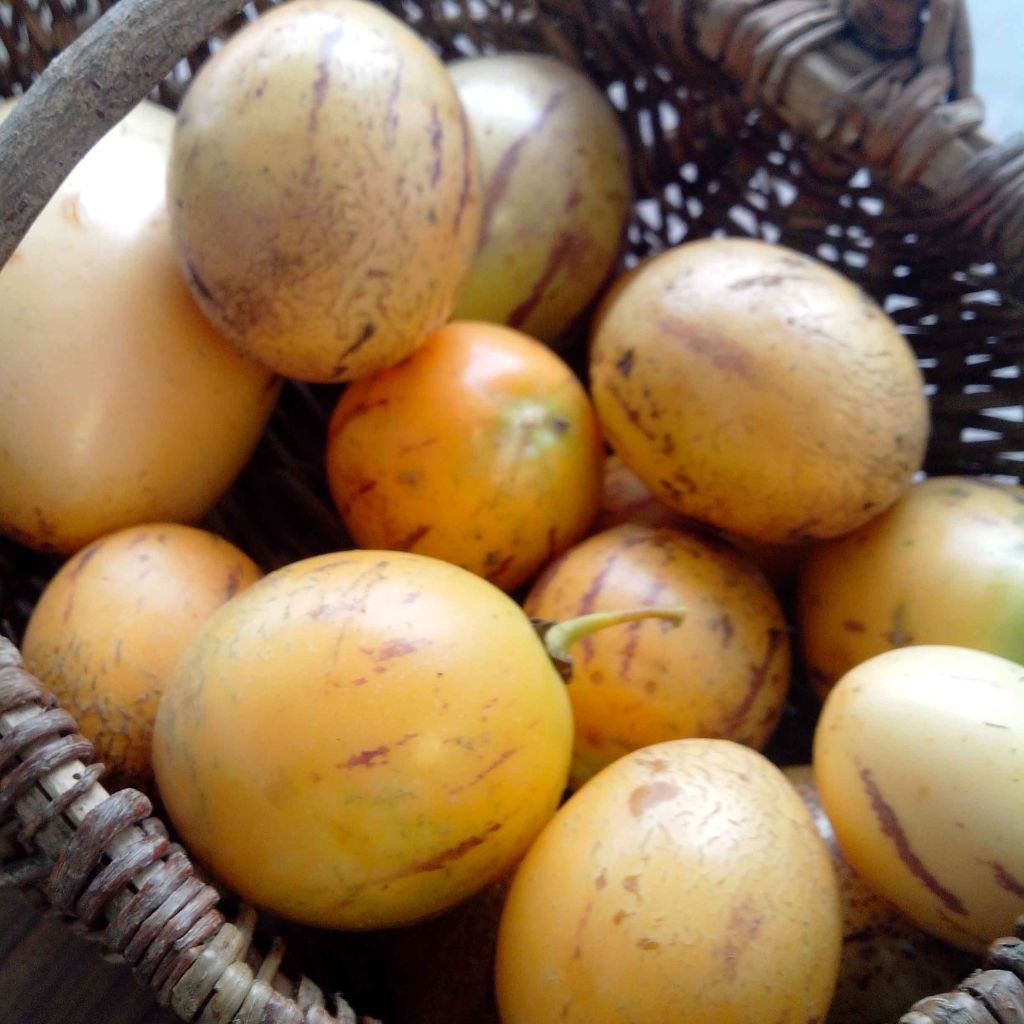

Melon Poire - Pépino - Solanum muricatum
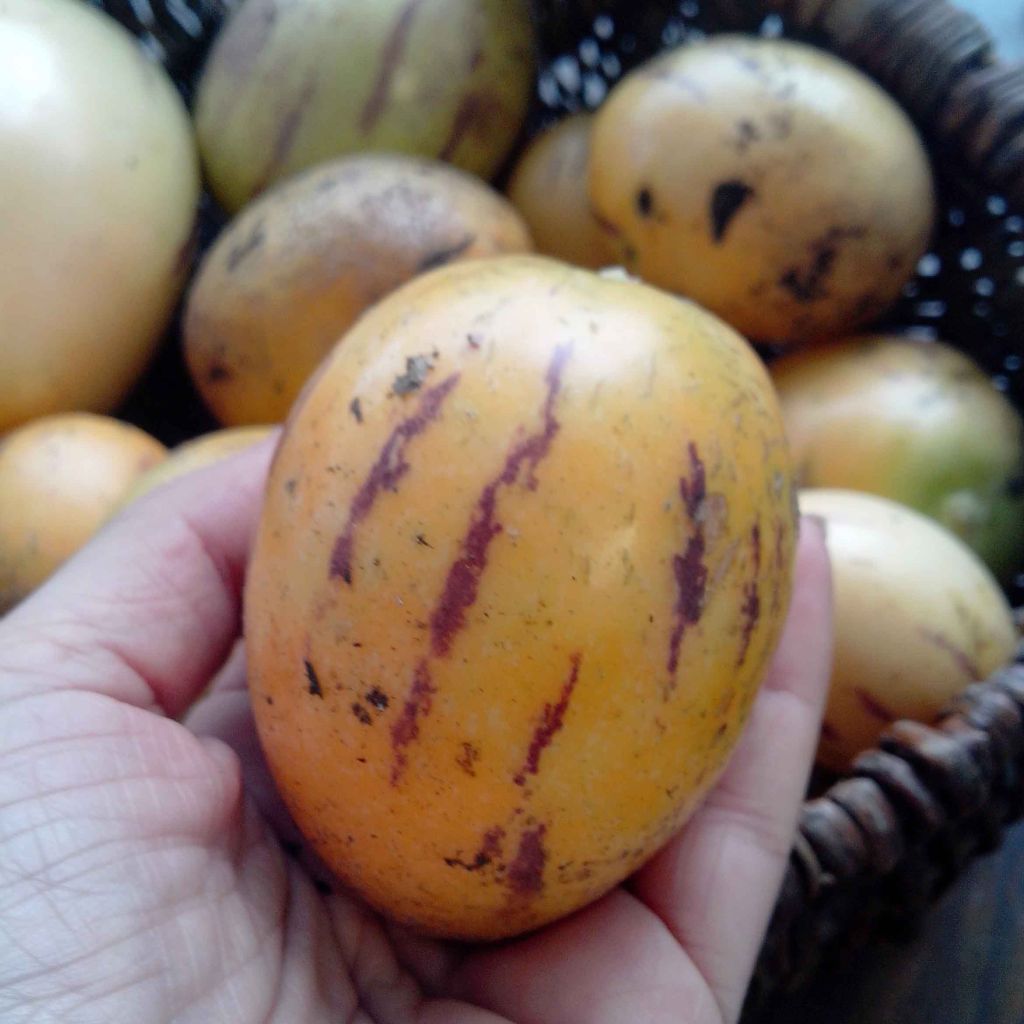

Melon Poire - Pépino - Solanum muricatum
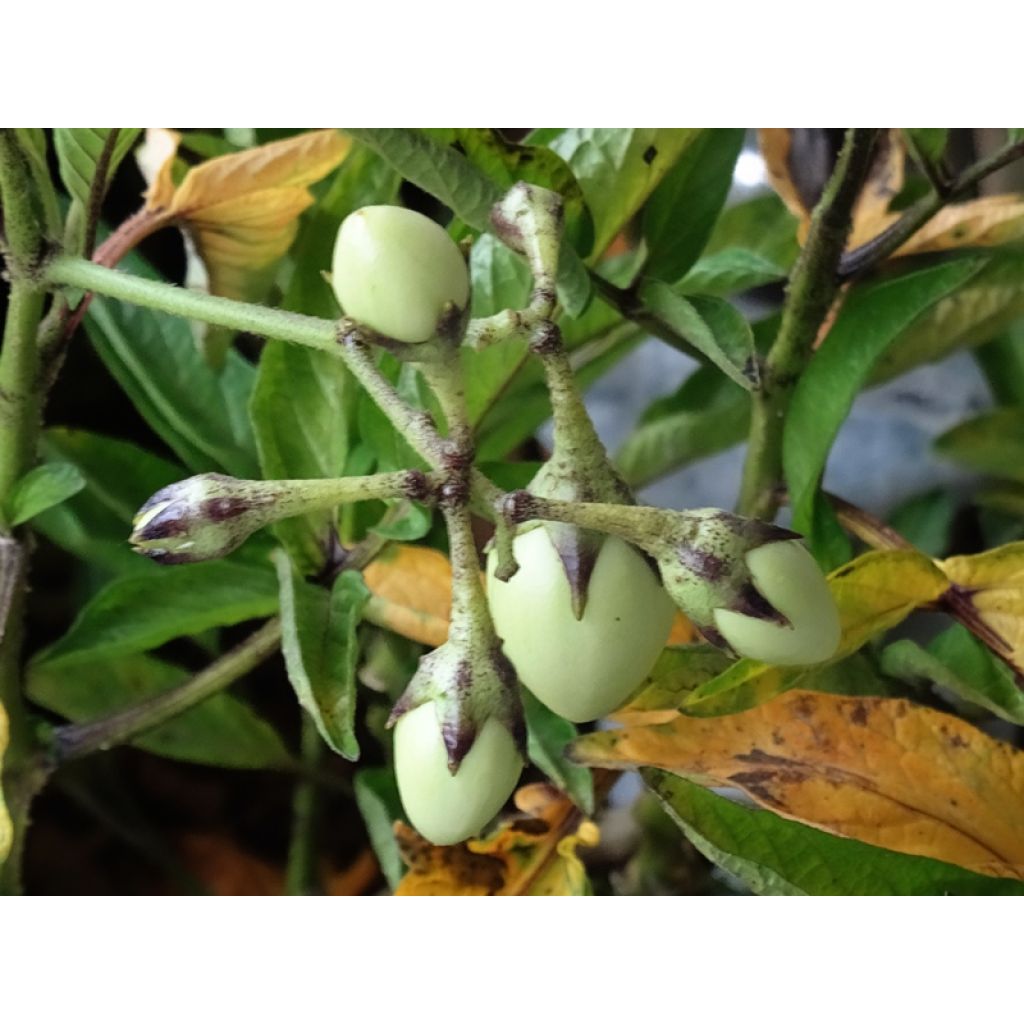

Pear Melon - Pepino - Solanum muricatum
Pear Melon - Pepino - Solanum muricatum
Solanum muricatum
Pepino melon, Pepino dulce, Sweet cucumber, Melon pear
This item cannot be shipped to the selected country
Delivery charge from €5.90
Delivery charge from €5.90
More information
Schedule delivery date,
and select date in basket
This plant carries a 6 months recovery warranty
More information
We guarantee the quality of our plants for a full growing cycle, and will replace at our expense any plant that fails to recover under normal climatic and planting conditions.
From €5.90 for pickup delivery and €6.90 for home delivery
Express home delivery from €8.90.
From €5.90 for pickup delivery and €6.90 for home delivery
Express home delivery from €8.90.
Description
The Pear Melon or Pepino is a shrubby plant, cultivated for its fruits that taste like a combination of pear and melon. This tender plant requires a lot of heat and can be planted in open ground or in pots in warm climates, or in a greenhouse in cooler regions. Planting is done in spring and harvest takes place in autumn.
The Pear Melon or Melon Pear belongs to the Solanaceae family, just like eggplant and tomato. Its name comes from its fruits, which have a taste that resembles both melon and pear. This perennial shrub has a bushy habit and reaches a height of almost 1 metre (3 feet) when fully matured. In summer, it produces decorative white and violet star-shaped flowers. The smooth-skinned fruits are oval-shaped and turn pale yellow with violet marbling when ripe.
Originally from South America, this tender plant requires a lot of heat. It can be grown in open ground in warm climates and will then be an annual plant. In cooler regions, it can be cultivated in a greenhouse or in a pot to be stored during winter. If it receives enough heat, it can be kept for several years.
Rich in vitamin C, the fruits of the Pear Melon are best consumed when fully ripe. They can be eaten raw for a refreshing taste, but they are more often cooked, either pan-fried as a side dish or used in jams, sorbets, or pies.
Harvesting: The fruits are harvested when fully ripe, in autumn, before the first frost. If the fruits have not fully ripened, pick them before the frost and let them ripen indoors.
Storage: The fruits can be stored for several weeks in a cool place at 10°C.
Gardening tip: We recommend mulching the soil with thin successive layers of grass clippings, preferably mixed with dead leaves. This protection helps keep the soil moist and also reduces weed growth.
Report an error about the product description
Pear Melon - Pepino - Solanum muricatum in pictures
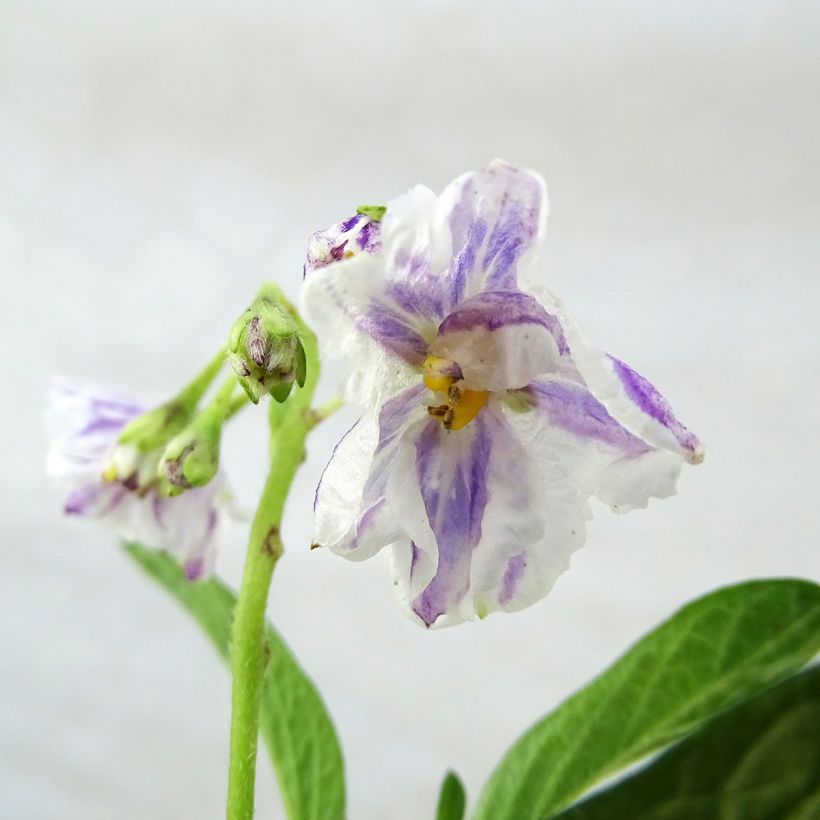

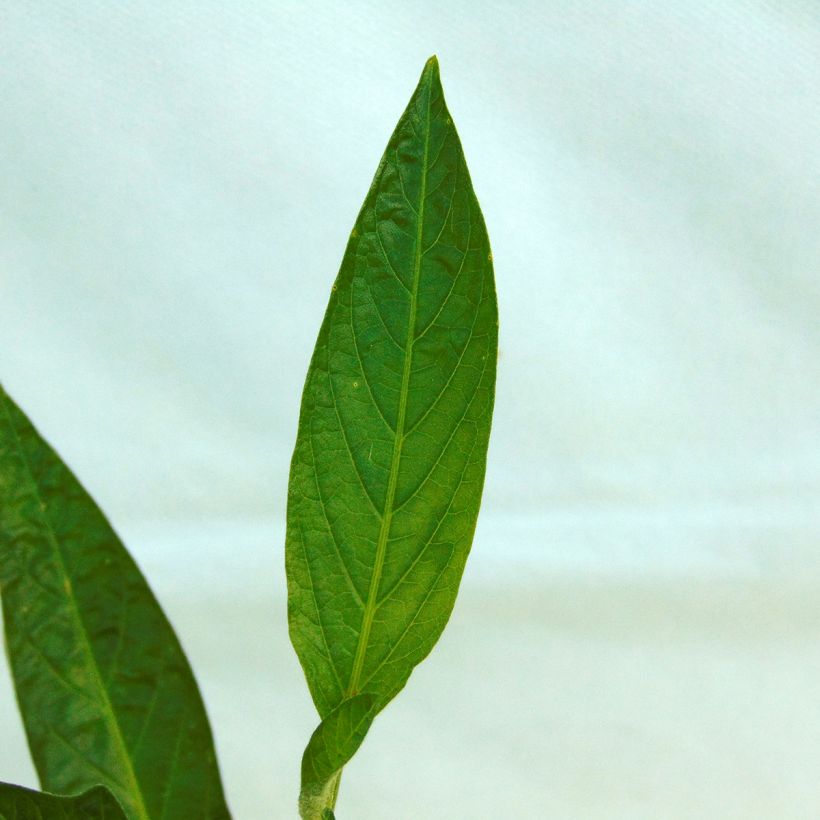

Harvest
Plant habit
Foliage
Other Vegetable garden A to Z
Planting and care
Planting is done in spring: in March-April for greenhouse or container planting, and in May-June, when the risk of frost has passed, for planting in open ground.
In open ground: The Pear Melon thrives in well-drained, rich, sandy soils. Choose a sunny and warm exposure. If you plant multiple plants, space them 60cm (24in) apart in all directions. Add well-rotted compost at the time of planting. Dig a hole (3 times the volume of the root ball), place the root ball and cover with soil. Firmly tamp down and water generously.
In a container: Install a layer of gravel at the bottom of the pot and fill it with a mixture of compost and sand. Place the root ball, cover with soil and lightly firm. Water to keep the soil moist. Remember to bring the pots indoors in autumn, before the first frosts. The Pepino does not tolerate negative temperatures.
During cultivation, water regularly at the base. Install stakes to help the plant support the weight of the fruits.
Pruning Pepino is not unanimous. You can remove the suckers as they appear, or grow the plant on a single stem, or let the plant grow without pruning. Depending on your choice, you will influence the number or size of the fruits.
Cultivation
Care
Intended location
-
, onOrder confirmed
Reply from on Promesse de fleurs
Old and forgotten vegetables
Haven't found what you were looking for?
Hardiness is the lowest winter temperature a plant can endure without suffering serious damage or even dying. However, hardiness is affected by location (a sheltered area, such as a patio), protection (winter cover) and soil type (hardiness is improved by well-drained soil).

Photo Sharing Terms & Conditions
In order to encourage gardeners to interact and share their experiences, Promesse de fleurs offers various media enabling content to be uploaded onto its Site - in particular via the ‘Photo sharing’ module.
The User agrees to refrain from:
- Posting any content that is illegal, prejudicial, insulting, racist, inciteful to hatred, revisionist, contrary to public decency, that infringes on privacy or on the privacy rights of third parties, in particular the publicity rights of persons and goods, intellectual property rights, or the right to privacy.
- Submitting content on behalf of a third party;
- Impersonate the identity of a third party and/or publish any personal information about a third party;
In general, the User undertakes to refrain from any unethical behaviour.
All Content (in particular text, comments, files, images, photos, videos, creative works, etc.), which may be subject to property or intellectual property rights, image or other private rights, shall remain the property of the User, subject to the limited rights granted by the terms of the licence granted by Promesse de fleurs as stated below. Users are at liberty to publish or not to publish such Content on the Site, notably via the ‘Photo Sharing’ facility, and accept that this Content shall be made public and freely accessible, notably on the Internet.
Users further acknowledge, undertake to have ,and guarantee that they hold all necessary rights and permissions to publish such material on the Site, in particular with regard to the legislation in force pertaining to any privacy, property, intellectual property, image, or contractual rights, or rights of any other nature. By publishing such Content on the Site, Users acknowledge accepting full liability as publishers of the Content within the meaning of the law, and grant Promesse de fleurs, free of charge, an inclusive, worldwide licence for the said Content for the entire duration of its publication, including all reproduction, representation, up/downloading, displaying, performing, transmission, and storage rights.
Users also grant permission for their name to be linked to the Content and accept that this link may not always be made available.
By engaging in posting material, Users consent to their Content becoming automatically accessible on the Internet, in particular on other sites and/or blogs and/or web pages of the Promesse de fleurs site, including in particular social pages and the Promesse de fleurs catalogue.
Users may secure the removal of entrusted content free of charge by issuing a simple request via our contact form.
The flowering period indicated on our website applies to countries and regions located in USDA zone 8 (France, the United Kingdom, Ireland, the Netherlands, etc.)
It will vary according to where you live:
- In zones 9 to 10 (Italy, Spain, Greece, etc.), flowering will occur about 2 to 4 weeks earlier.
- In zones 6 to 7 (Germany, Poland, Slovenia, and lower mountainous regions), flowering will be delayed by 2 to 3 weeks.
- In zone 5 (Central Europe, Scandinavia), blooming will be delayed by 3 to 5 weeks.
In temperate climates, pruning of spring-flowering shrubs (forsythia, spireas, etc.) should be done just after flowering.
Pruning of summer-flowering shrubs (Indian Lilac, Perovskia, etc.) can be done in winter or spring.
In cold regions as well as with frost-sensitive plants, avoid pruning too early when severe frosts may still occur.
The planting period indicated on our website applies to countries and regions located in USDA zone 8 (France, United Kingdom, Ireland, Netherlands).
It will vary according to where you live:
- In Mediterranean zones (Marseille, Madrid, Milan, etc.), autumn and winter are the best planting periods.
- In continental zones (Strasbourg, Munich, Vienna, etc.), delay planting by 2 to 3 weeks in spring and bring it forward by 2 to 4 weeks in autumn.
- In mountainous regions (the Alps, Pyrenees, Carpathians, etc.), it is best to plant in late spring (May-June) or late summer (August-September).
The harvesting period indicated on our website applies to countries and regions in USDA zone 8 (France, England, Ireland, the Netherlands).
In colder areas (Scandinavia, Poland, Austria...) fruit and vegetable harvests are likely to be delayed by 3-4 weeks.
In warmer areas (Italy, Spain, Greece, etc.), harvesting will probably take place earlier, depending on weather conditions.
The sowing periods indicated on our website apply to countries and regions within USDA Zone 8 (France, UK, Ireland, Netherlands).
In colder areas (Scandinavia, Poland, Austria...), delay any outdoor sowing by 3-4 weeks, or sow under glass.
In warmer climes (Italy, Spain, Greece, etc.), bring outdoor sowing forward by a few weeks.

































